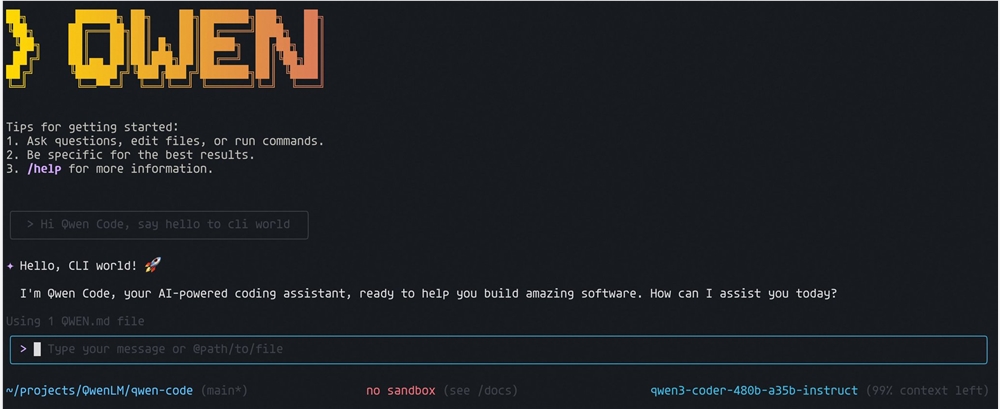Recently, Alibaba Cloud's Qwen announced the official launch of Qwen Code, an AI coding agent, bringing significant benefits to developers. According to AIbase, this agent provides users with 2000 free daily calls, with no token limits, injecting new vitality into AI applications in the programming field. This move not only reduces the cost for developers to use AI coding tools but also marks further popularization and deepening of AI technology in software development.

Key features of Qwen Code: powerful and easy to use
Qwen Code is an AI coding agent based on a command-line interface, supporting developers to efficiently complete tasks such as code generation, completion, debugging, and explanation in terminal environments. Compared to competitors like Google's Gemini CLI, Qwen Code is more convenient to operate, requiring only one command to install (`npx @qwen-code/qwen-code@latest`). In addition, its policy of no token limits and 60 API calls per minute further enhances usage flexibility. Users can enjoy free support after verifying their Qwen account, significantly lowering the entry barrier.
Special offers for users in mainland China
Notably, the daily 2000 free call limit for Qwen Code is currently available only to users in mainland China, while overseas users can enjoy 1000 calls. This policy demonstrates Alibaba Cloud's commitment to promoting AI technology in the domestic market, while also providing global developers with an open GitHub resource access channel. The official GitHub page has updated related usage guides, making it easier for developers to get started quickly.
The powerful technical support of Qwen3-Coder
Behind Qwen Code lies the Qwen3-Coder series of models released by Alibaba's Tongyi Qianwen in July 2025. The flagship version, Qwen3-Coder-480B-A35B-Instruct, has 480 billion parameters, uses a mixture of experts (MoE) architecture, with 35 billion activated parameters, natively supports a context length of 256K, and can be extended to 1 million tokens through YaRN technology. This model performs exceptionally well in tasks such as code generation, agentic coding, and agentic browser use, matching the performance of industry-leading models like Claude Sonnet4.
Wide application prospects and ecosystem building










